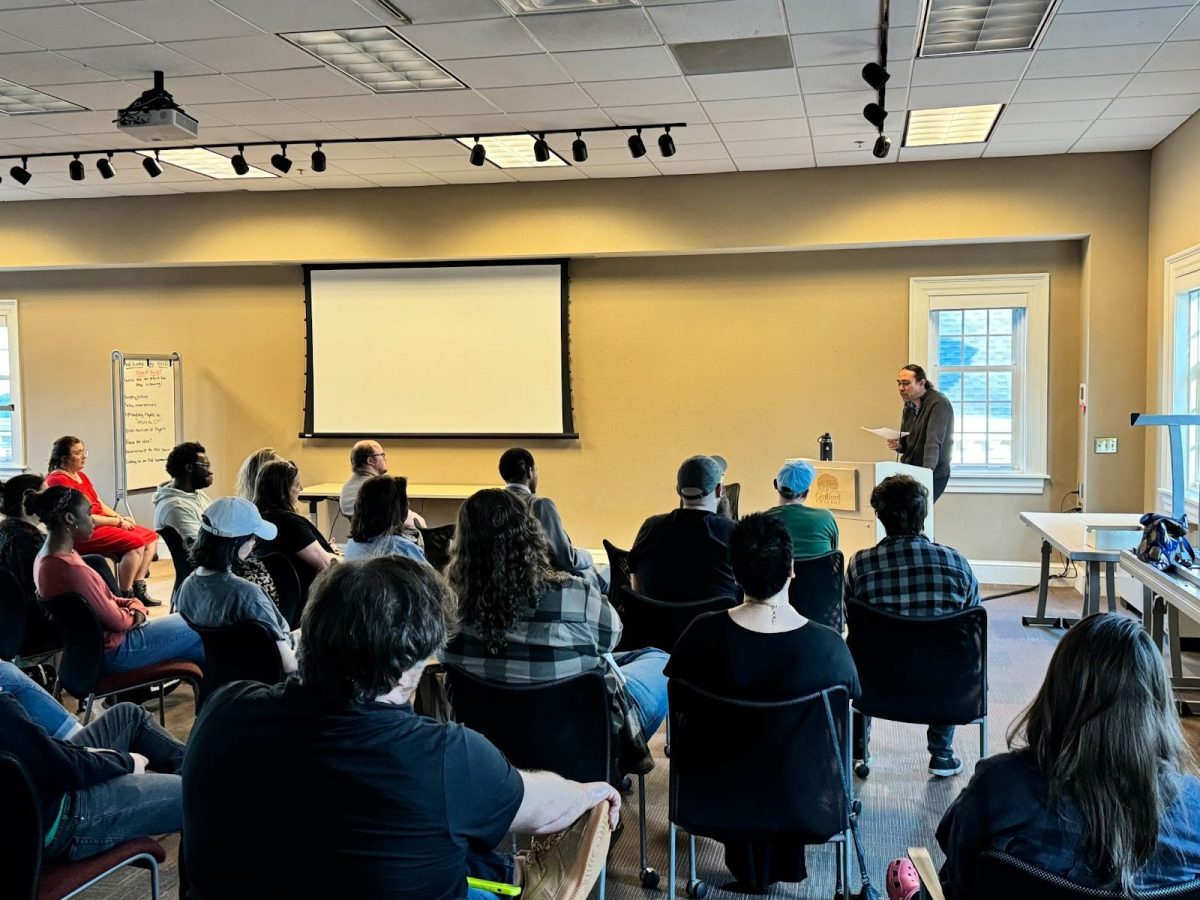“No frats or sororities now, no frats or sororities ever as long as I’m president,” said President and Professor of Political Science Kent Chabotar. “I was at Bowdoin College before we ended frats after 150 years. I have no intentions of letting that happen here and having another battle royale.”
On Nov. 30, Campus Activities Board held its second official debate of the semester, titled “Should Guilford Go Greek,” to seek input and address speculation regarding the possibility of Greek life coming to Guilford College.
“I don’t know how these rumors started,” said Chabotar. “There is no truth to the rumor that the college is contemplating, has contemplated or will contemplate Greek life on campus.”
CAB organizes major events such as Serendipity and the Guilford Formal, but few other smaller events have drawn as much attention as this debate.
“I basically think it’s funny that so many people are freaking out about the discussion,” said senior Amy McMinn. “When people get upset about having a discussion that shows they’re being closed-minded.”
Chabotar reinforced the fact that this debate will not extend past the event.
“If CAB had debated germ warfare would people now accuse Guilford of having engaging in germ warfare?” said Chabotar. “It’s a debate.”
Nevertheless, high emotions surfaced during the debate.
Four qualified students in teams of two debated if Guilford should or should not consider Greek life. The anti-Greek debaters included Community Senate President senior Tim Leisman and sophomore Patrick Withrow. The pro-Greek pair included senior Eamon Deely-Wood and sophomore Alex Morales.
“I’m not going to name names,” said Withrow. “At least one of my opponents was very informal in how he treated the debate, slamming the table. We stuck to our guns, and we didn’t dodge the argument like the other team attempted to.”
The pro-Greek team noted the benefits fraternities can bring to campus.
Costume Designer/Costume Shop Supervisor Mahealani Jones said that she pledged when she was in college to benefit from the positive aspects of Greek life.
“I remember going trick or treating for canned goods with my Alpha Phi Omega brothers,” said Jones about the co-ed service fraternity.
“We dropped it off at local food banks to donate. Greek life is not all about getting drunk and partying. It’s about changing the world.”
The anti-Greek duo argued that fraternities and sororities would increase illicit behavior and foster a culture of drugs, drinking and misogyny.
“I don’t think (Greek Life) possible at Guilford,” said Leisman. “The administration and the Board of Trustees are strongly against it. They are the ones who make the decisions from 22,000 feet away for the college. They’re the ones who control millions of dollars of endowment.”
Debaters in favor of Greek life countered that it would be an opportunity to expand Guilford’s club system and to have someone takes responsibility for parties on campus.
They also claimed it would provide an increased opportunity to network.
“You get an automatic circle of like-minded people (and) that expands beyond college,” said Deely. “I know people that received internships because of their connection with a Greek system.”
Chabotar agrees with Leisman, even in light of his positive Greek experience.
“I was a fraternity member in college,” said Chabotar. “I had a great time, but times are different. Fraternities or sororities will not work at Guilford.”






